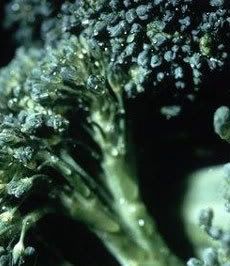
Many cultures use garlic not only as a fragrant and flavorful ingredient in dishes, but also as a medicine. Research confirms that garlic has numerous healing properties and can be especially beneficial to expectant mothers.
Garlic has a veritable grocery-list of general health benefits, including its ability to:
Protect against cardiovascular disease.
Reduce the risk of heart attacks and stroke by lowering LDL ("bad") cholesterol while elevating HDL ("good") cholesterol.
Reduce triglycerides and blood pressure.
Increase circulation in the capillaries.
Prevent LDL oxidation and reduce clot-forming platelet activity and inflammation, thereby preventing coronary plaques.
Protect against free radical and carcinogen-induced DNA damage.
Stop the growth of a wide variety of human cancer cells including breast, colon, prostate, melanoma and erythroleukemia.
Prevent neuron death, and enhance memory by stimulating growth and branching of neurons in the brain.
Protect against fungal, yeast, and viral infections.
New research shows that consuming garlic during pregnancy can reduce the risk of preeclampsia and may help boost the birth-weight of growth-retarded fetuses. The research, performed at Chelsea & Westminster Hospital in London, demonstrated that when extracts of garlic were added to placental cells of women who were likely to suffer from these conditions, growth was stimulated. In addition, the activity of key enzymes whose activity is reduced in such abnormal pregnancies was significantly increased when garlic was administered.Ginger
For morning sickness relief, try a piece of ginger! For over two thousand years traditional Chinese medicine has used ginger to treat a variety of health problems, including abdominal bloating, vomiting, diarrhea, and rheumatism. And now research has found that ginger can help reduce nausea related to motion sickness, post-operative recovery, and pregnancy.
Ginger's nausea reducing benefits are attributed to its ability to absorb and neutralize toxins and stomach acid, while increasing digestive fluids and bowel activity. Ginger also causes the blood vessels to dilate (which is why you feel warm after eating it), and blocks the serotonin receptors in the stomach that cause nausea.
Ginger has general health benefits in addition to its anti-nausea properties. The fresh root's ability to induce sweating is believed to dispel pathogens and it has been used to treat asthma, cough, colic, heart palpitation, swellings, dyspepsia, loss of appetite, and rheumatism. Researchers have also found ginger to be a more potent blood clotting agent than garlic or onion, and that it reduces the stickiness of blood platelets which may help reduce the risk of atherosclerosis. However, ginger is not recommended if you suffer from gall bladder disease.
Try grinding or chopping fresh ginger and adding it to your favorite dishes tonight!
Garlic has a veritable grocery-list of general health benefits, including its ability to:
Protect against cardiovascular disease.
Reduce the risk of heart attacks and stroke by lowering LDL ("bad") cholesterol while elevating HDL ("good") cholesterol.
Reduce triglycerides and blood pressure.
Increase circulation in the capillaries.
Prevent LDL oxidation and reduce clot-forming platelet activity and inflammation, thereby preventing coronary plaques.
Protect against free radical and carcinogen-induced DNA damage.
Stop the growth of a wide variety of human cancer cells including breast, colon, prostate, melanoma and erythroleukemia.
Prevent neuron death, and enhance memory by stimulating growth and branching of neurons in the brain.
Protect against fungal, yeast, and viral infections.
New research shows that consuming garlic during pregnancy can reduce the risk of preeclampsia and may help boost the birth-weight of growth-retarded fetuses. The research, performed at Chelsea & Westminster Hospital in London, demonstrated that when extracts of garlic were added to placental cells of women who were likely to suffer from these conditions, growth was stimulated. In addition, the activity of key enzymes whose activity is reduced in such abnormal pregnancies was significantly increased when garlic was administered.Ginger
For morning sickness relief, try a piece of ginger! For over two thousand years traditional Chinese medicine has used ginger to treat a variety of health problems, including abdominal bloating, vomiting, diarrhea, and rheumatism. And now research has found that ginger can help reduce nausea related to motion sickness, post-operative recovery, and pregnancy.
Ginger's nausea reducing benefits are attributed to its ability to absorb and neutralize toxins and stomach acid, while increasing digestive fluids and bowel activity. Ginger also causes the blood vessels to dilate (which is why you feel warm after eating it), and blocks the serotonin receptors in the stomach that cause nausea.
Ginger has general health benefits in addition to its anti-nausea properties. The fresh root's ability to induce sweating is believed to dispel pathogens and it has been used to treat asthma, cough, colic, heart palpitation, swellings, dyspepsia, loss of appetite, and rheumatism. Researchers have also found ginger to be a more potent blood clotting agent than garlic or onion, and that it reduces the stickiness of blood platelets which may help reduce the risk of atherosclerosis. However, ginger is not recommended if you suffer from gall bladder disease.
Try grinding or chopping fresh ginger and adding it to your favorite dishes tonight!

